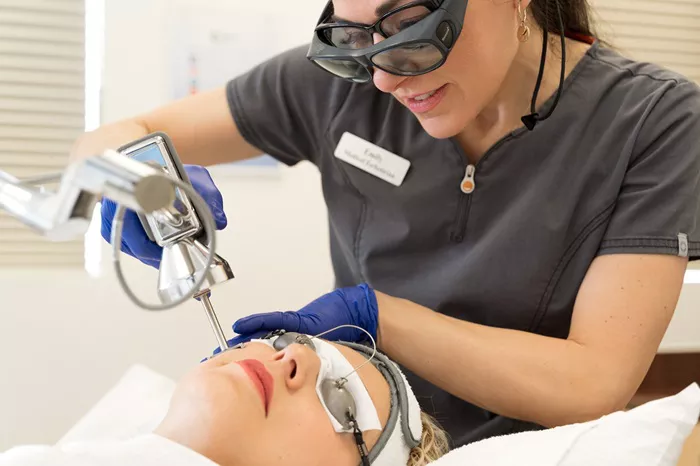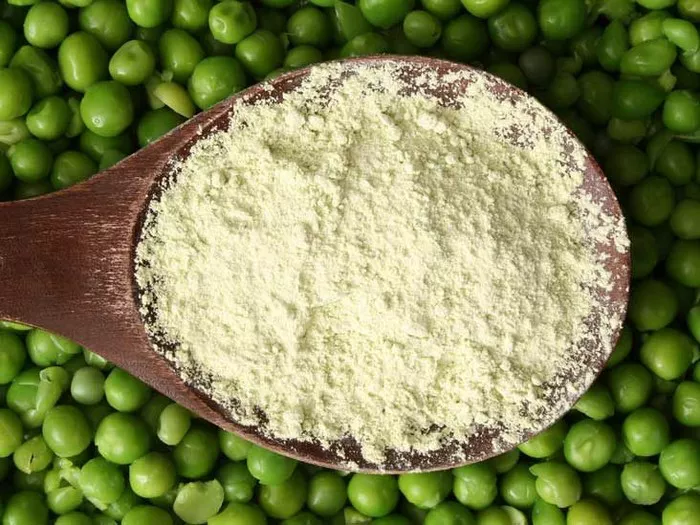Profractional laser treatments are a popular choice for individuals looking to improve their skin’s texture and appearance. This advanced skin resurfacing procedure can address a variety of skin issues, including wrinkles, scars, and sun damage. However, the success of profractional laser treatment largely depends on proper post-procedure care. This comprehensive guide will provide you with detailed instructions on how to care for your skin after undergoing a profractional laser treatment.
Understanding Profractional Laser Treatment
Profractional laser treatment involves using a laser to create microscopic channels in the skin. This stimulates the body’s natural healing process, promoting the production of collagen and new skin cells. The result is smoother, more youthful-looking skin. Unlike traditional laser resurfacing, profractional laser treatments target only a fraction of the skin at a time, which allows for quicker healing and less downtime.
Immediate Post-Treatment Care
The first 24 hours after your profractional laser treatment are crucial for your skin’s recovery. Proper care during this period can help reduce discomfort and speed up the healing process.
Cooling the Skin: Immediately after the treatment, your skin may feel warm or hot. Applying a cool compress or ice pack can help soothe the skin and reduce inflammation. Be sure to wrap the ice pack in a soft cloth to avoid direct contact with your skin.
Avoid Touching the Skin: Your skin will be very sensitive after the treatment. Avoid touching, rubbing, or scratching the treated area to prevent infection and irritation.
Use a Gentle Cleanser: Cleanse your skin with a gentle, non-irritating cleanser. Avoid using hot water, as it can further irritate your skin. Pat your skin dry with a soft, clean towel.
Managing Redness and Swelling
Redness and swelling are common after profractional laser treatment. These symptoms typically peak within the first 24-48 hours and gradually subside over the next few days.
Elevate Your Head: Sleeping with your head elevated can help reduce swelling. Use an extra pillow or two to keep your head raised while you sleep.
Apply Anti-Inflammatory Creams: Your dermatologist may recommend or prescribe anti-inflammatory creams or ointments to help reduce swelling and redness. Follow their instructions carefully.
Stay Hydrated: Drinking plenty of water helps your body heal more efficiently and can reduce swelling.
Moisturizing and Hydration
Keeping your skin moisturized is essential for the healing process after profractional laser treatment. Hydrated skin heals faster and more effectively.
Use a Gentle Moisturizer: Apply a gentle, fragrance-free moisturizer to your skin several times a day. Look for products that contain ingredients like hyaluronic acid, which helps retain moisture.
Avoid Harsh Ingredients: Steer clear of moisturizers that contain alcohol, retinoids, or alpha hydroxy acids (AHAs) as they can irritate your skin and slow down the healing process.
Hydrating Serums: Consider using hydrating serums that contain ingredients like hyaluronic acid or glycerin. These can provide an extra layer of moisture and support your skin’s healing.
Sun Protection
Protecting your skin from the sun is crucial after profractional laser treatment. Your skin will be more sensitive to UV rays, and sun exposure can lead to complications and negatively affect your results.
Avoid Sun Exposure: Stay out of direct sunlight as much as possible, especially during the first few weeks after your treatment. If you need to go outside, wear a wide-brimmed hat and protective clothing.
Use Sunscreen: Apply a broad-spectrum sunscreen with an SPF of at least 30 to all treated areas. Reapply every two hours if you’re outside. Choose a sunscreen that is gentle and formulated for sensitive skin.
Limit Outdoor Activities: Try to limit your outdoor activities, especially during peak sun hours (10 a.m. to 4 p.m.). If you must be outside, seek shade whenever possible.
Avoiding Irritants
After profractional laser treatment, your skin will be more susceptible to irritation. Avoiding certain products and activities can help prevent complications and promote healing.
Skip Makeup: Avoid wearing makeup for at least a week after your treatment. When you do start using makeup again, opt for mineral-based products that are less likely to irritate your skin.
No Exfoliation: Refrain from using exfoliating products, scrubs, or harsh cleansers for at least two weeks. These can irritate your skin and impede the healing process.
Avoid Hot Environments: Stay away from hot showers, saunas, and steam rooms. Heat can increase inflammation and irritation.
Gentle Clothing: Wear soft, loose-fitting clothing that won’t rub against the treated area. Avoid fabrics that can cause friction and irritation.
See Also: How Do Swimmers Take Care of Their Skin?
Diet and Nutrition
Your diet can have a significant impact on your skin’s healing process. Eating a healthy, balanced diet can support your body’s recovery and promote healthy skin.
Stay Hydrated: Drinking plenty of water is essential for keeping your skin hydrated and supporting the healing process.
Eat Antioxidant-Rich Foods: Foods high in antioxidants, such as fruits and vegetables, can help reduce inflammation and support skin repair.
Protein Intake: Protein is crucial for collagen production and skin repair. Include lean protein sources like chicken, fish, beans, and nuts in your diet.
Avoid Alcohol and Caffeine: Both alcohol and caffeine can dehydrate your skin and slow down the healing process. Limit your intake during the recovery period.
Managing Discomfort and Itching
It’s common to experience some discomfort and itching as your skin heals. Managing these symptoms can make the recovery process more comfortable.
Pain Relief: Over-the-counter pain relievers like acetaminophen can help alleviate discomfort. Avoid aspirin and nonsteroidal anti-inflammatory drugs (NSAIDs) as they can increase the risk of bruising.
Anti-Itch Creams: If itching becomes bothersome, ask your dermatologist about anti-itch creams or medications that are safe to use on treated skin.
Avoid Scratching: Scratching can damage your skin and increase the risk of infection. Keep your nails short and consider wearing gloves at night to prevent accidental scratching.
Follow-Up Care
Follow-up care with your dermatologist is an important part of the healing process. They can monitor your progress and address any concerns you may have.
Scheduled Appointments: Attend all scheduled follow-up appointments with your dermatologist. They will assess your skin’s healing and make any necessary adjustments to your aftercare routine.
Report Any Issues: If you notice any unusual symptoms, such as excessive redness, swelling, or signs of infection, contact your dermatologist immediately.
Long-Term Maintenance: Your dermatologist may recommend long-term skincare products or treatments to maintain your results. Follow their advice to keep your skin looking its best.
Emotional and Psychological Care
The healing process after a profractional laser treatment can be emotionally and psychologically challenging. Taking care of your mental well-being is just as important as caring for your skin.
Be Patient: Healing takes time, and it’s normal to feel impatient or anxious about your results. Remember that your skin will continue to improve over the next several weeks and months.
Stay Positive: Focus on the positive aspects of your recovery and the improvements you will see in your skin. Surround yourself with supportive friends and family who can offer encouragement.
Seek Support: If you find the recovery process overwhelming, consider joining a support group or talking to a mental health professional. They can provide valuable coping strategies and emotional support.
Understanding Potential Complications
While profractional laser treatments are generally safe, complications can occur. Knowing what to watch for can help you address issues promptly.
Infection: Signs of infection include increased redness, swelling, pus, or a fever. Contact your dermatologist immediately if you suspect an infection.
Hyperpigmentation: Some individuals may experience hyperpigmentation (darkening of the skin) after laser treatment. Using sunscreen and following your dermatologist’s advice can help prevent this.
Scarring: Although rare, scarring can occur. Proper aftercare and following your dermatologist’s instructions can minimize this risk.
Prolonged Redness: If redness persists for more than a few weeks, consult your dermatologist. They can recommend treatments to help reduce redness.
Long-Term Skincare Routine
Maintaining a proper skincare routine after your skin has healed is crucial for preserving your results and promoting healthy skin.
Daily Cleansing: Use a gentle cleanser to keep your skin clean without stripping away natural oils.
Moisturize Regularly: Continue using a gentle, hydrating moisturizer to keep your skin soft and supple.
Sun Protection: Always use sunscreen, even after your skin has healed. Sun protection is essential for preventing further damage and maintaining your results.
Regular Exfoliation: Once your skin has fully healed, incorporate gentle exfoliation into your routine to keep your skin smooth and radiant.
Professional Treatments: Consider periodic professional treatments, such as chemical peels or additional laser sessions, to maintain your skin’s appearance.
Conclusion
Caring for your skin after profractional laser treatment requires diligence and attention to detail. By following the proper aftercare steps, you can ensure a smooth recovery and maximize the benefits of your treatment. Remember to stay hydrated, protect your skin from the sun, and avoid irritants. Consult your dermatologist for personalized advice and follow-up care. With the right approach, you can enjoy the rejuvenated, youthful skin that profractional laser treatments provide.
[inline_related_posts title=”You Might Be Interested In” title_align=”left” style=”list” number=”6″ align=”none” ids=”10964,10929,10886″ by=”categories” orderby=”rand” order=”DESC” hide_thumb=”no” thumb_right=”no” views=”no” date=”yes” grid_columns=”2″ post_type=”” tax=””]



































